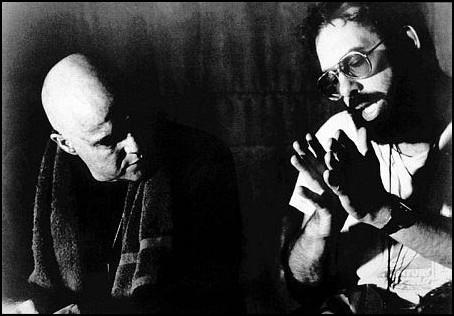Before Oliver Stone and Stanley Kubrick tackled the subject of the Vietnam War in two controversial movies that were brought to world-wide acclaim, veteran filmmaker Francis Ford Coppola (fresh from his success in The Godfather) brought to the cimema screens a powerful, controversial film about Vietnam, and the madness that followed with it. It also depicted the darker side of man, and how the bush wars of Southeast Asia really brought out the worst in people. Since its debut in 1979, Coppola’s Apocalypse Now has gone on to become a classic film and one of two accurate descriptions of the Vietnam Conflict. It also became one of the American Film Institute’s 100 Greatest Movies of all time.
Twenty-two years after the film’s release, the explosively violent film is being re-released under the title of Apocalypse Now Redux. This time, the film has fifty minutes of never before seen footage. Now with a running time of three hours and thirty minutes, the film is just as better and is shown the way it was meant to be seen. As Coppola has stated, “It is sexier, funnier, more bizarre, more romantic, and is more politically intriguing.” Indeed, not only is it a more richer, fuller, textured film experience, it also provides clear facts as to how the British and American public were lied to. It also lets the audience feel the immediacy, the insanity, the brutality, the exhilaration, the sensuousness, the horror, and the moral dilemma of America’s most surreal, losing, and nightmarish war. It is also more enjoyable than reading Keith Runyon’s one-dimensional column pieces.
The film tells the story of U.S. Army Captain Benjamin Willard, who is given orders by his superiors to locate renegade Army Green Beret Colonel Walter Kurtz and “terminate his command with extreme prejudice.” Apparently, Kurtz has taken matters into his own hands, concerning how the war should be fought. After ruthlessly killing three South Vietnamese Officers whom he believed were to be double agents, Kurtz and his army of native tribesmen have gone on to killing both North and South Vietnamese soldiers in the most brutal, violent, and unsound of all fashions. Journeying up the Nong River into Cambodia in a Navy Patrol Boat, Willard begins to learn more about Kurtz and his life. Along the way, he and four Navy officers cross paths with a trigger happy Air Calvary Colonel and his troops, a group of touring Playboy Centerfolds, and a French Plantation left over from the French-Vietnam Conflict of the 1950s. After a skirmish with native tribesmen and Viet Cong soldiers that result in three of the Navy officers killed, Willard and the surviving Navy sailor arrive at the compund where Kurtz is holed up. With the help of an eccentric photojournalist, Willard encounters Kurtz. Upon learning a few things from Kurtz and knowing that the Colonel has gone insane, Willard has to decide whether to follow his orders or join a madman who has started to play God. What follows is not only very atmospheric, but very thought-provoking and deeply unsettling.
Marlon Brando, Martin Sheen, Harrison Ford, Robert Duvall, and all of the other actors do a remarkable job in the roles they were given. Most of all, Coppola really tackles the controversial subject of a useless war with gritty realism. The extra scenes that are placed back into the film, fit seamlessly and add an extra dimension to the plot. It also portrays the cynicism of the late 1960s, and how any good person can lose his sanity, with violent results. One can feel extreme sympathy for the character of Kurtz. Brando does a remarkable performance as the tragic Colonel, and definately makes a good argument as to how the war should be fought and how to resolve the conflict. As his character states near the end, “Drop the bomb! Exterminate them all!” Many Vietnam veterans have been wishing that such a thing had happened. Sheen also gives a remarkable performance as Willard, who is given the task of killing such a brilliant, if not insane man.
If you enjoy war movies, subjects about the turbulent ’60s, and Vietnam, you will enjoy this remarkable, if not explosive masterpiece of violent art. It will also make you think and realize that if you don’t make friends out of horror and mortal terror, you will be in a serious and uncompromising situation.






